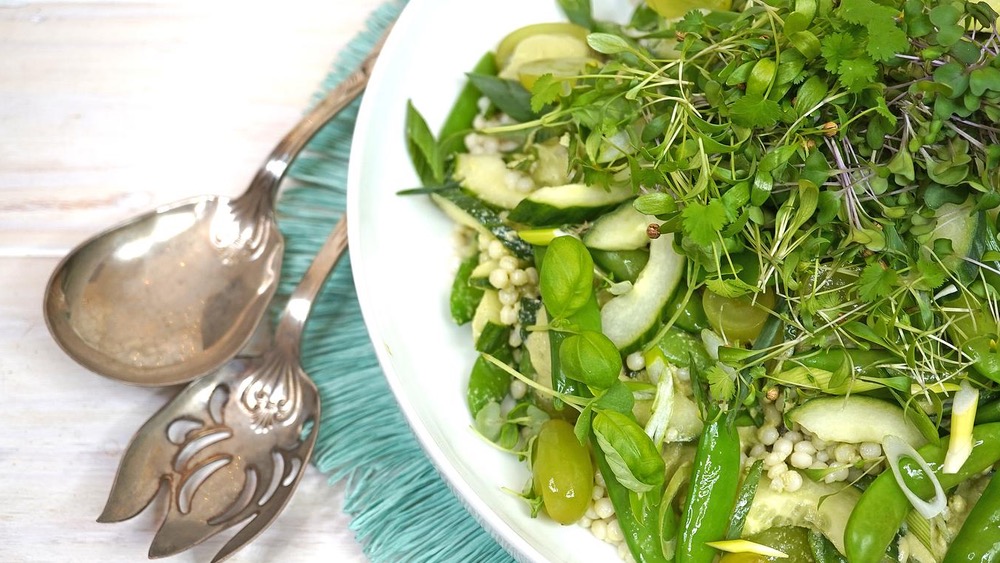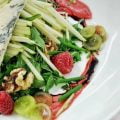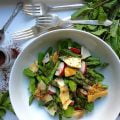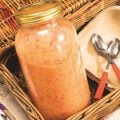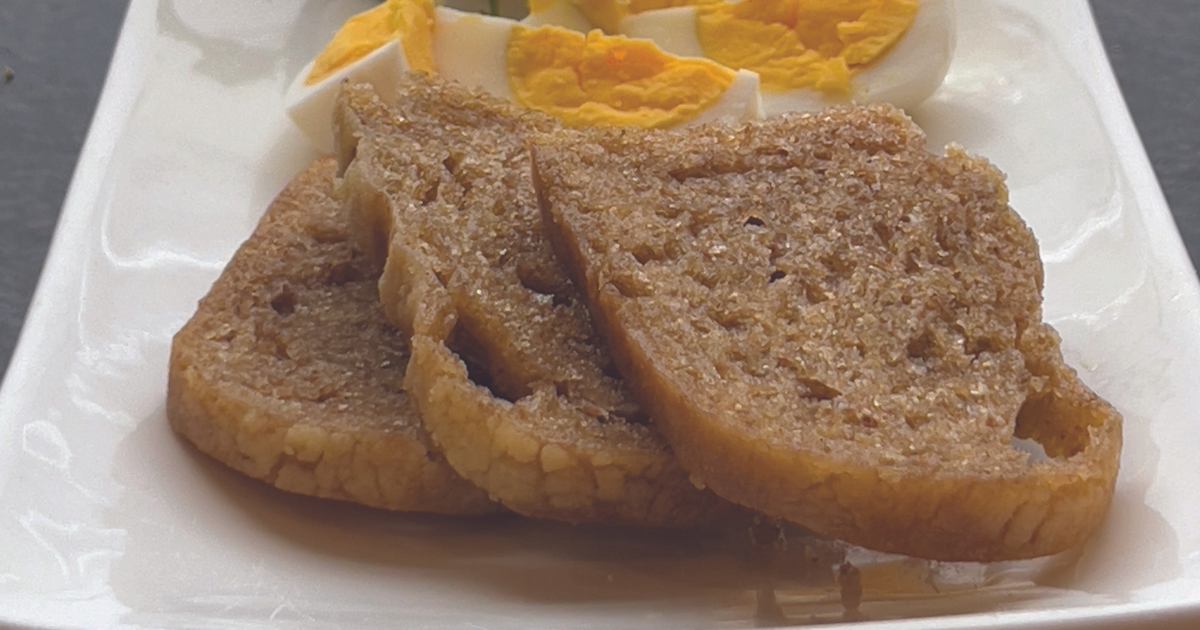The beauty of summer salads is that they are simple and delicious. Whether you are enjoying this easy dish as a meal, serving it as a side or bringing it to a potluck, this satisfying salad uses the best of summer veggies and herbs. Israeli couscous is, in essence, pasta, as it is made with semolina. If you are unable to source this ingredient in your neck of the woods, I suggest substituting orzo, a pasta that is shaped like rice. The orzo can be toasted in a dry frying pan before being boiled if you’d like a little bit of a deeper, toasty component to your dish. Serves 6.

Ingredients
2 cups Israeli couscous
1 cup halved green grapes
1⁄2 cup chopped mint
1⁄2 cup flat-leaf parsley
1⁄4 cup torn basil
4 green onions, finely chopped
2 cups seeded and sliced cucumber
2 cups sugar snap peas
For the Creamy Sunflower Seed and Cilantro Dressing, makes 2 cups
1⁄2 cup hulled, raw unsalted sunflower seeds
Zest and juice of 2 limes
1⁄2 cup cilantro leaves and stems
2 green onions, roughly chopped
1⁄2 tsp salt

Method
Boil 1 cup water and prepare couscous according to package directions.
Prepare the Creamy Sunflower Seed and Cilantro Dressing: In blender, add sunflower seeds, lime zest and juice, cilantro, onions and salt and pulse until smooth.
Blanch and shock sugar snap peas.
HOW TO BLANCH: Fresh veggies are the essence of summer, but when a recipe calls for them to be cooked, blanching them is the best way to preserve their crunch and flavour. Blanching and shocking is a technique used to cook and preserve the vibrancy and crunchiness of vegetables partially. Vegetables can be eaten after they’ve been blanched and shocked, or they can be added at the end of a recipe. Blanched and shocked vegetables are perfect for vegetable grazing trays, salads and pasta.
1. GET THE WATER JUST RIGHT!
You’ll need a pot of salted boiling water, and when I say salted, I am speaking of salinity levels beginning to approach the salinity of seawater. This is especially important if you plan on serving the vegetables cold. Salting the water well will ensure that your vegetables will be flavourful. You’ll also need an ice bath, a large bowl of ice and water. Please use lots of ice here. Only the most frigid water will work to properly shock or arrestcess the cooking pro.
2. BLANCH IT!
Place your vegetables in the boiling water and allow them to cook. For delicate vegetables like snow peas, snap peas or asparagus, I blanch for about 30 to 45 seconds. For more robust vegetables like carrots, you will want to blanch for up to 90 seconds, and autumn squash and potatoes will take longer.
3. SHOCK IT!
Shocking vegetables in ice water helps to lock in colour and to maintain a lovely crisp texture. Keep the vegetables in the icy water just until they cool completely and then remove immediately. Leaving the vegetables in the water longer than is necessary degrades their eating quality.
After blanching, in bowl, combine couscous, grapes, mint, parsley, basil, onions, cucumbers and sugar snap peas and toss gently with dressing to coat; season with salt and pepper to taste.
Enjoy!

Chef ILona Daniel is Harrowsmith's Food Editor and the founder of Tribe Fresh Events and Consulting, a purpose-driven insights consultancy accelerated by modern approaches to the hospitality industry, immersive experiences, and community and culture development. She has worked on projects around the world and is on the Board of Directors for the Tourism Association of PEI. Chef Ilona is a media personality, and a Culinary Instructor at the Culinary Institute of Canada.

